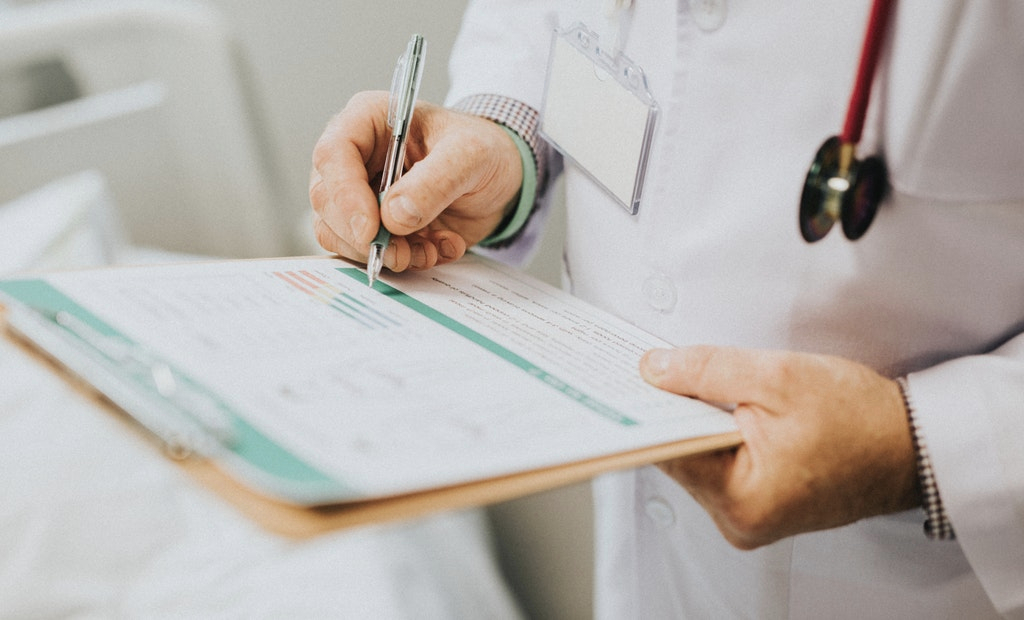Can medical apps cut down time in the doctor’s waiting room?

People in the UK spend around six months of their lives, on average, in some form of queue or other. For those of us who are time-poor, or who don’t handle being kept waiting for long periods very well, this can naturally be stressful. And if you’re waiting to be seen by your doctor, this stress can also have an adverse effect on your symptoms. 90% of people in one survey said they were irritated by such delays.
Given that most people will wait for at least a few minutes in the surgery waiting room whenever they’re ill, while their doctor or dentist finishes typing up the previous patient’s notes and slips on a fresh pair of polythene gloves, and that the magazines arranged there are invariably either not of interest or date back to 1990, it makes sense to encourage patients stuck in a holding pattern to use their time productively. This can have multiple benefits besides enhanced patient-doctor engagement. It relieves pressure on reception staff trying to stick to schedules, it can save money on expensive treatments, and it can potentially keep people alive.
Our mobile-connected generation is a willing testing ground for many apps that have been designed to cut waiting times through a variety of innovative means – and that doesn’t include immersive handheld games that make time seem to disappear!
One example is that a lot of doctors’ surgeries are now requiring patients to fill in forms electronically on tablets or special stations instead of using paper and pen. The biggest advantage here is that information saved in this format can quickly be retrieved by reception staff on future visits, reducing the need to search filing cabinets for folders that may have been misfiled. The increased use of technology in a surgery, while it may initially be bewildering for some patients, can inspire confidence that the medical staff’s techniques will be equally hi-tech.
NHS apps
The NHS offers dozens of interesting apps for multiple devices, some free and some paid-for. They cover information on everything from common surgeries to insomnia and shoulder strains. There is one that allows patients to check their symptoms against certain conditions, with the app then giving suggested treatments, which could save people the need to come in at all. A similar app allows people to self-diagnose dental problems before arrival, cutting consultation times, assuming they get it right!
There are also several apps which provide useful advice on how to keep a healthy lifestyle, including diet and exercise, which will reduce the chances of getting ill in the first place.
Preventing contagion
There are several apps on the market which can put people in direct contact with a healthcare professional without having to leave their own sick bed. These can be very useful in situations where someone has an infectious illness and doesn’t want to pass it on to medical staff or other patients. Alternatively, they could be used by people who are unable to easily reach the doctor. For instance, if they live in remote areas or are infirm, but still need regular consultations.
Apps exist which claim to give accurate waiting times in advance, which would be great in the event of an emergency so long as the updated times could be guaranteed to be 100% reliable. And one American health care chain has launched a mobile app that allows people heading for an emergency department to alert staff of their expected arrival time and symptoms, to help reduce treatment times and save lives.
Good patients
Of course there’s not much chance of technology solving one of the main causes of delay, which is patients who either arrive late or drag their allotted time with the doctor out by adding more and more ailments as they go along. In which case all we can do is try to be better patients ourselves, keeping appointments or calling ahead when we’re running late so someone can jump ahead, and telling the doctor at the start of each session exactly what we want to discuss.
Amanda Walters

























Facebook
Twitter
Instagram
YouTube
RSS